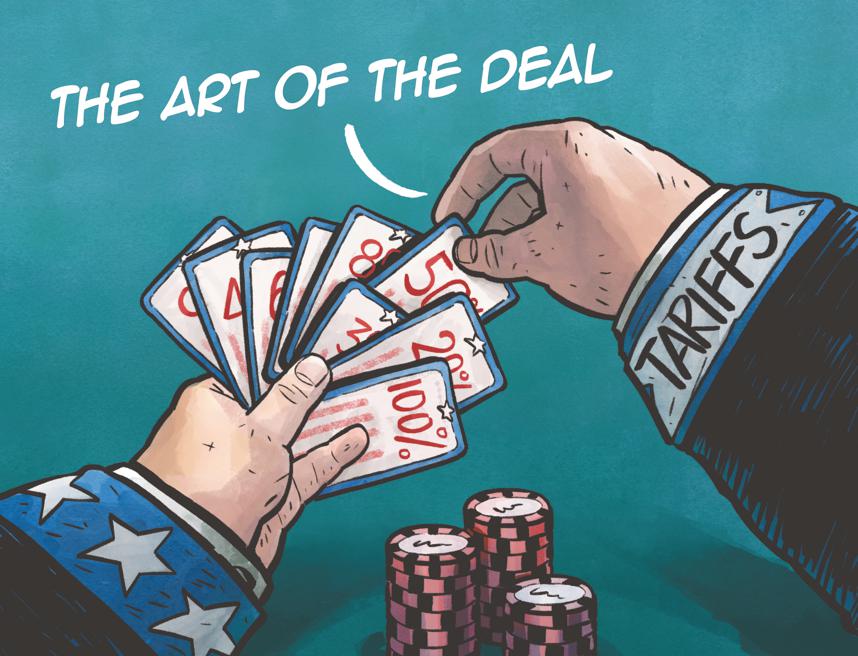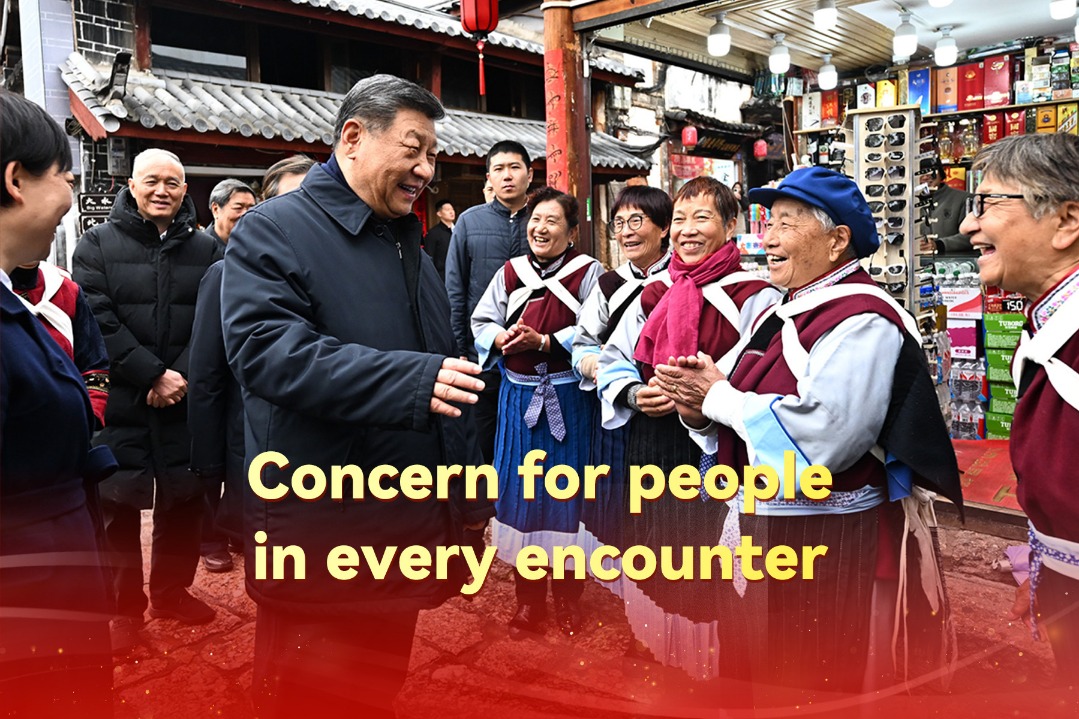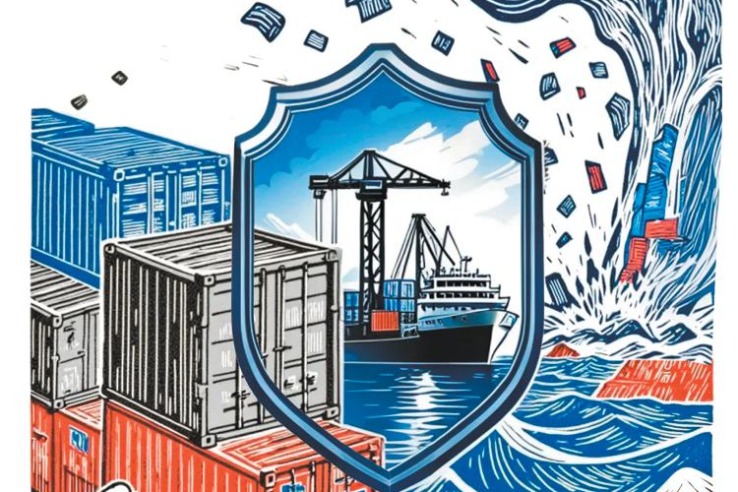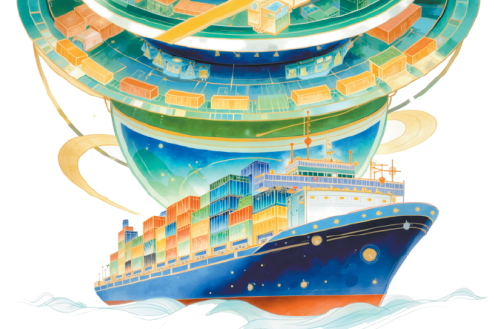Touted 'art of the deal' no way to conduct trade


India will keep purchasing oil from Russia despite the United States administration's threats of penalties, according to a Reuters report.
Considering that came shortly after the US president said on Friday that he had heard that India would no longer be buying oil from Russia, that might further strain the ongoing trade talks between the US and India.
Their trade talks have also been bogged down by issues including access to what the US administration says is India's "highly protected" agriculture and dairy sector.
But considering that there is no question of New Delhi compromising on India's agriculture and dairy sectors, especially as it will not allow imports of dairy products due to religion-based opposition to animal feed in these products, even US officials think the differences between the two countries will not be easily resolved.
The US' dealmaking with some other major economies is also not going smoothly. Since news of the US-EU framework deal was announced last month, not only has criticism mounted, but it has become clear that many details are yet to be ironed out, as the BBC pointed out in a report.
European Commission President Ursula von der Leyen seemed to rejoice at the announcement that a 15 percent tariff would be applied on most EU exports to the US. Yet, although that is lower than the 30 percent tariff initially threatened by the US, it is still more than three times the previous 4.8 percent average rate.
With both sides still wrangling over the details, the EU and the US have not released an official statement on the framework deal. Even if these are resolved, the European Commission has emphasized the statement will not be legally binding but a "set of political commitments".
In response to the discontent of many of its member states, Brussels can only try and comfort them by saying that the framework deal has at least prevented the escalation of the trade tensions with the US.
The US side said the EU will invest heavily in the country, and buy more US oil and gas as part of the agreed framework deal. But scaling up further in these sectors — about 80 percent of EU defense spending goes to the US now — means the bloc will put all its eggs in one basket in both security and the economy.
That is at odds with Von der Leyen's recent ReArm Europe plan, which calls for investments in Europe's domestic defense industry, as well as the EU's de-risking economic policy orientation.
No wonder French President Emmanuel Macron said: "To be free, you have to be feared... We have not been feared enough. There is a greater urgency than ever to accelerate the European agenda for sovereignty and competitiveness."
As some observers point out, the EU might roll out some compensation for EU exporters, but that would end up costing taxpayers, resulting in Europeans paying the price of US tariffs.
Likewise, although the US has announced remarkable progress has been made in its trade talks with different economies, how much its "victory" can at last be finalized in the form of other economies opening their markets for US goods while enabling the US to raise tax rates on their exports to the US remains to be seen.
While the US has effectively wielded tariffs as a cudgel, as the Associated Press noted, to reset the terms of trade, the economic impact is uncertain as most economists expect a slowdown in US growth and greater inflationary pressures as some of the costs of the taxes are passed along to domestic businesses and consumers.
Moreover, the administration's attempts to bind its tariff war with its geopolitical purposes, including the Ukraine crisis, only serve to make the situation more complicated and threaten to derail not only its trade talks with certain economies but also the solution of related burning issues.
A tariff war does not have a victor. Waging a tariff war against the rest of the world will not raise the US' tariff revenues, and cannot help offset the budget deficit increases or create jobs, two stated objectives of the administration.
Accounting for about 17 percent of the world's goods trade, the US is overestimating its capability to lever change in the world's trade rules by simply wielding a tariff baton. Let alone the fact that it has not introduced any practical rules in the process so far except a protectionist, unilateral and exploitative approach under the cover of the "art of the deal".

































